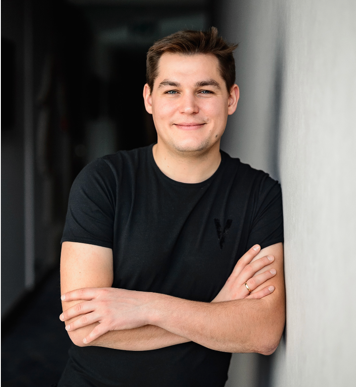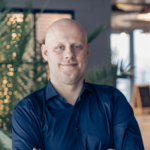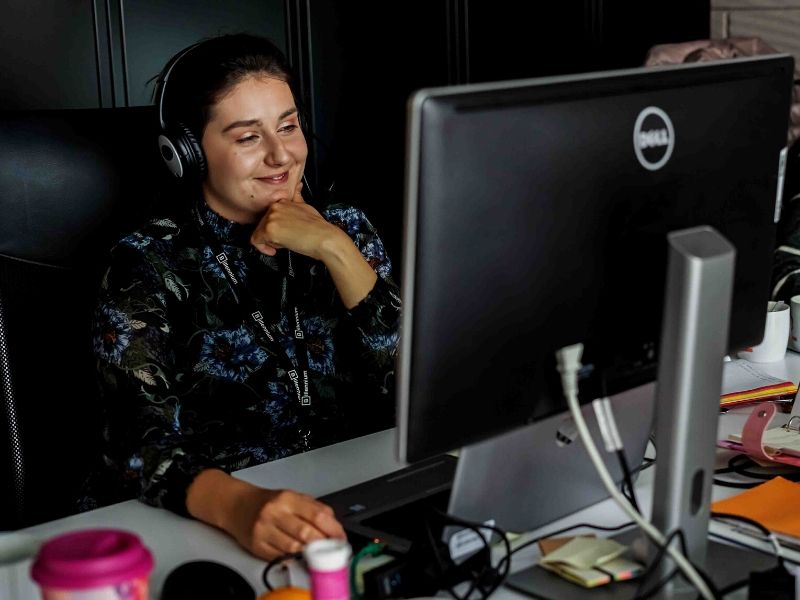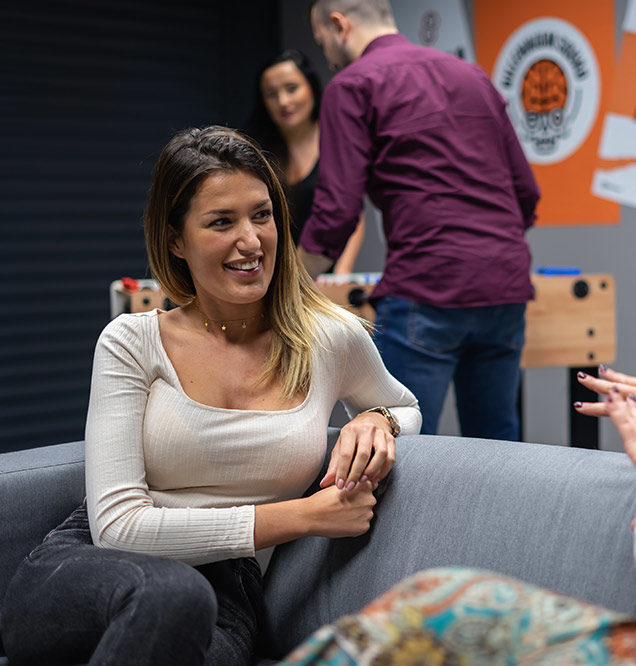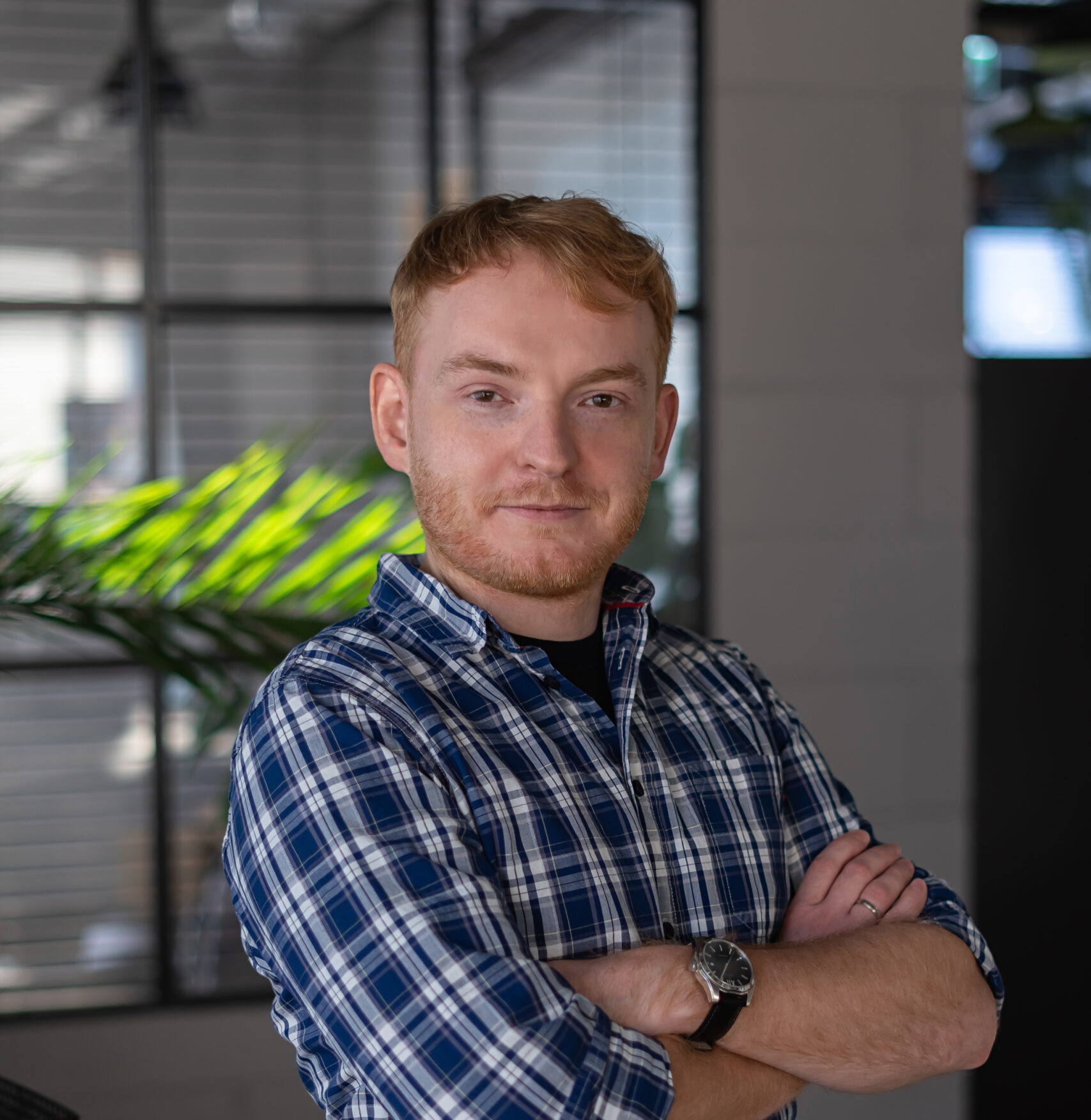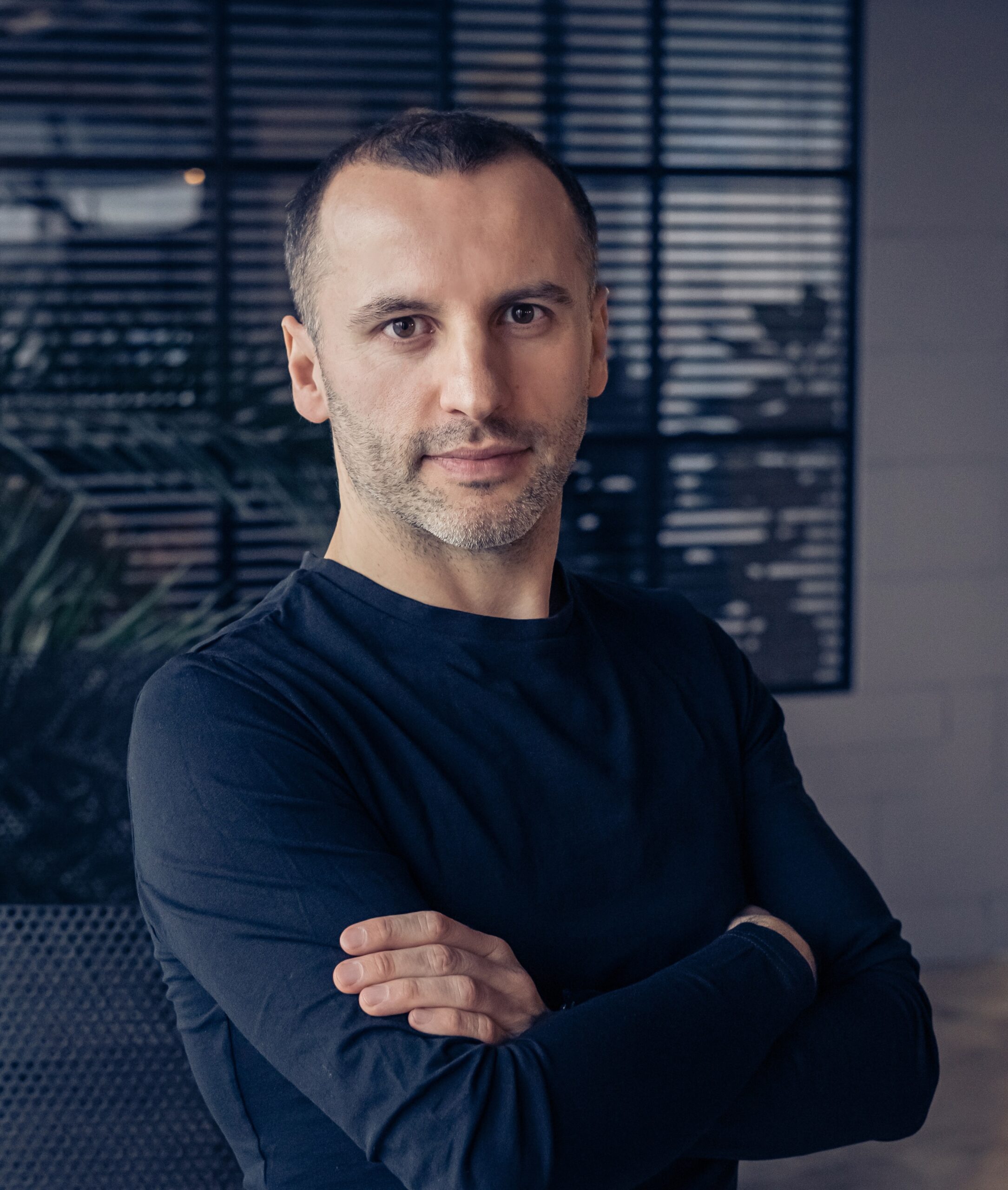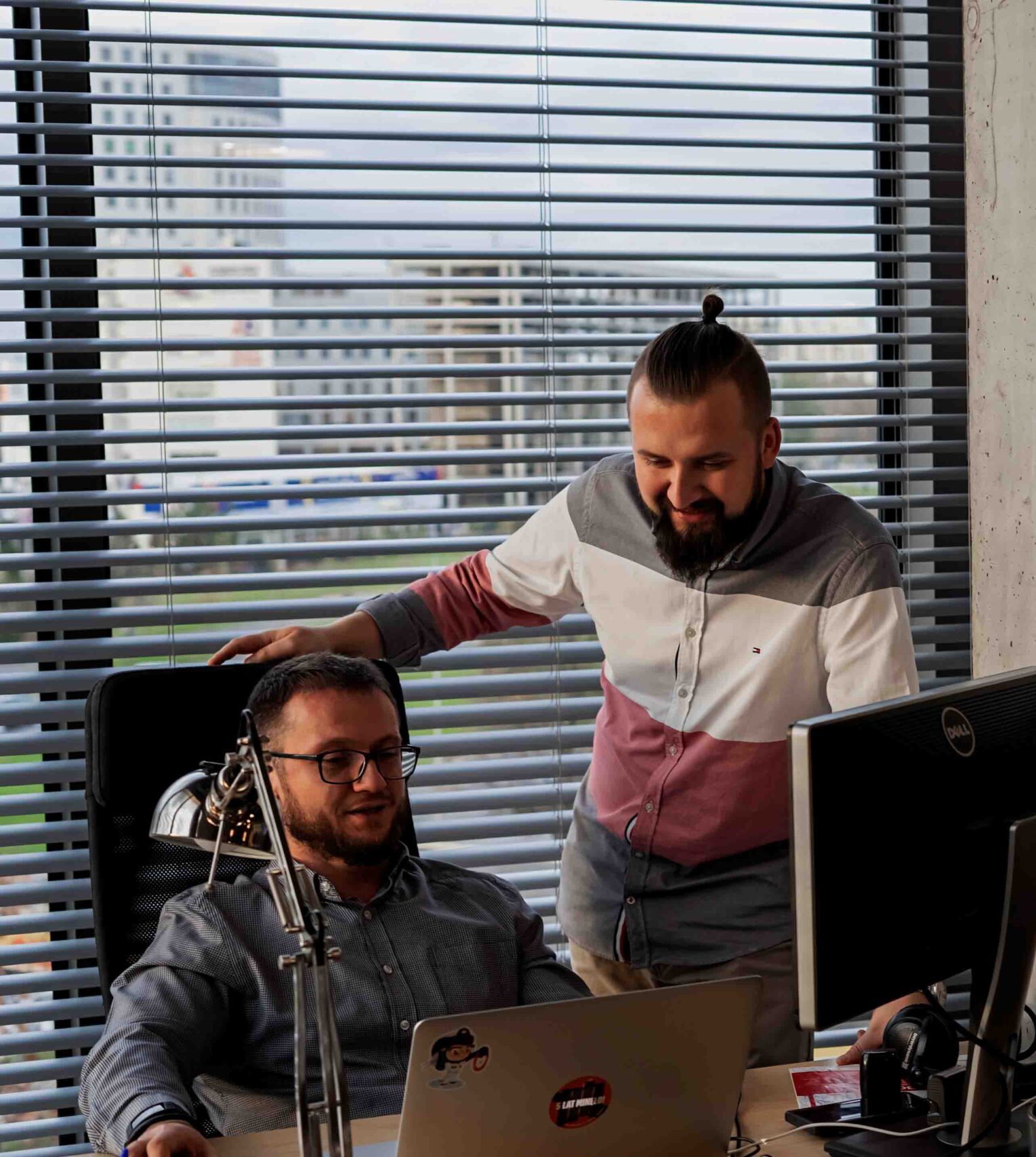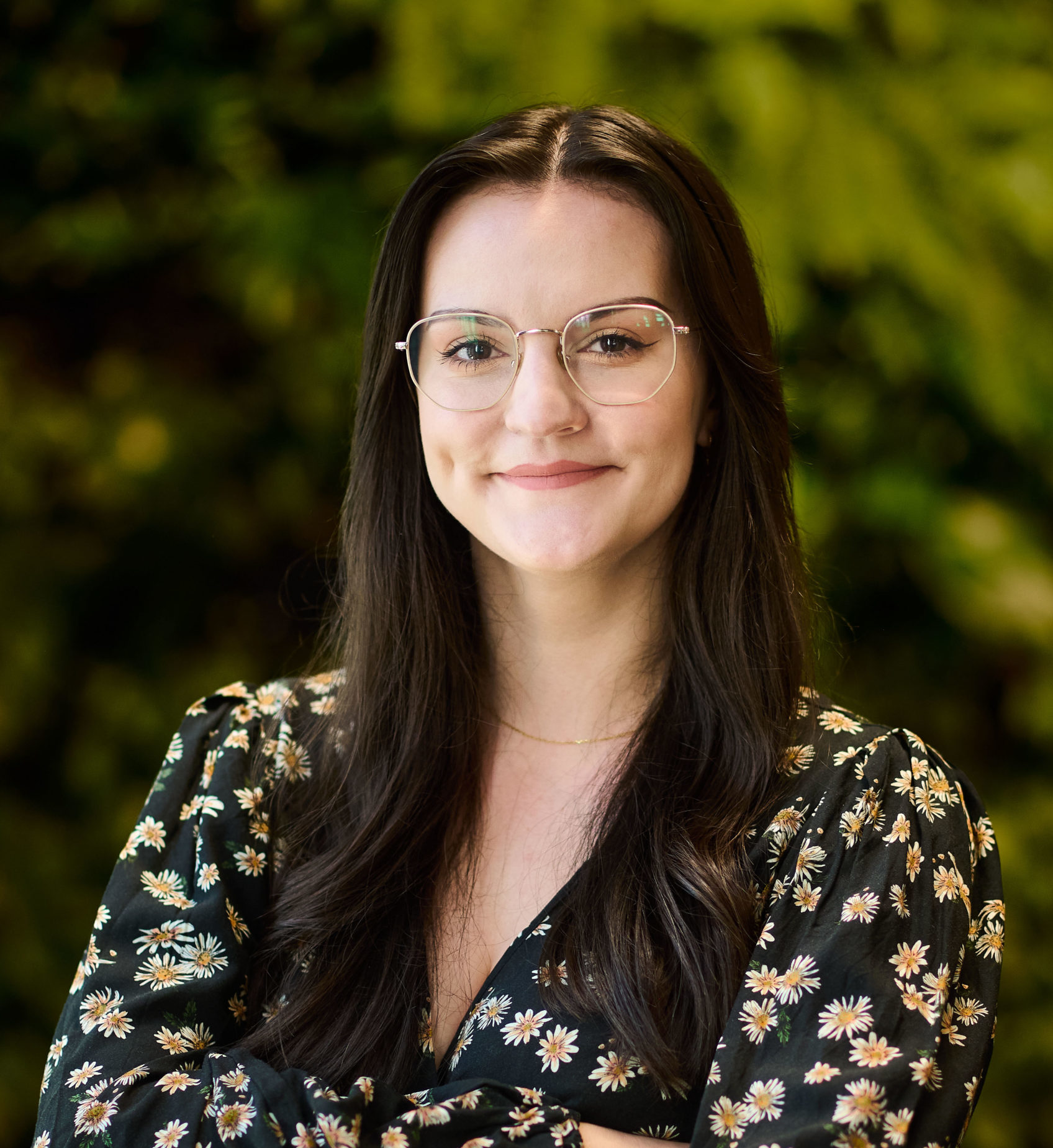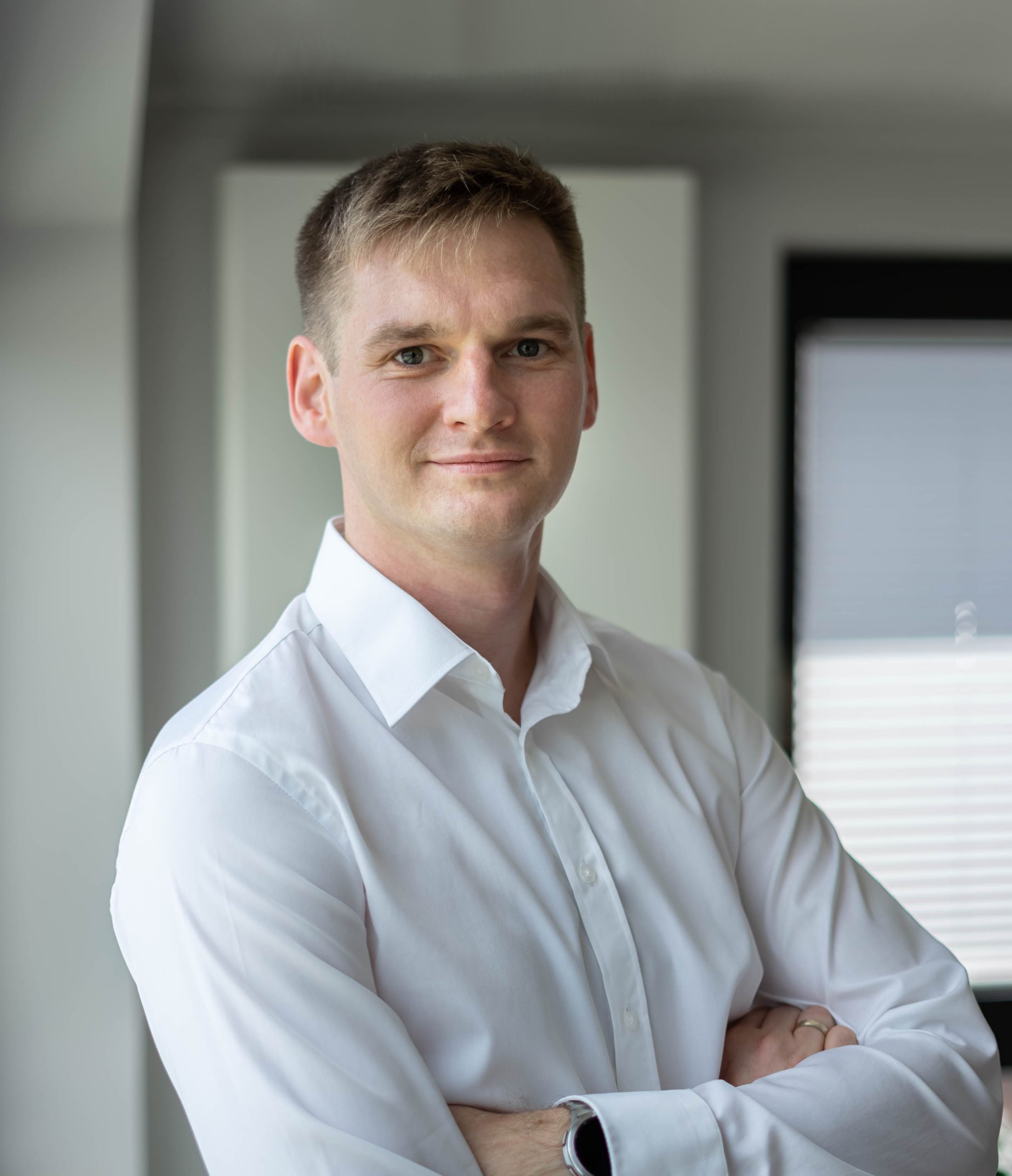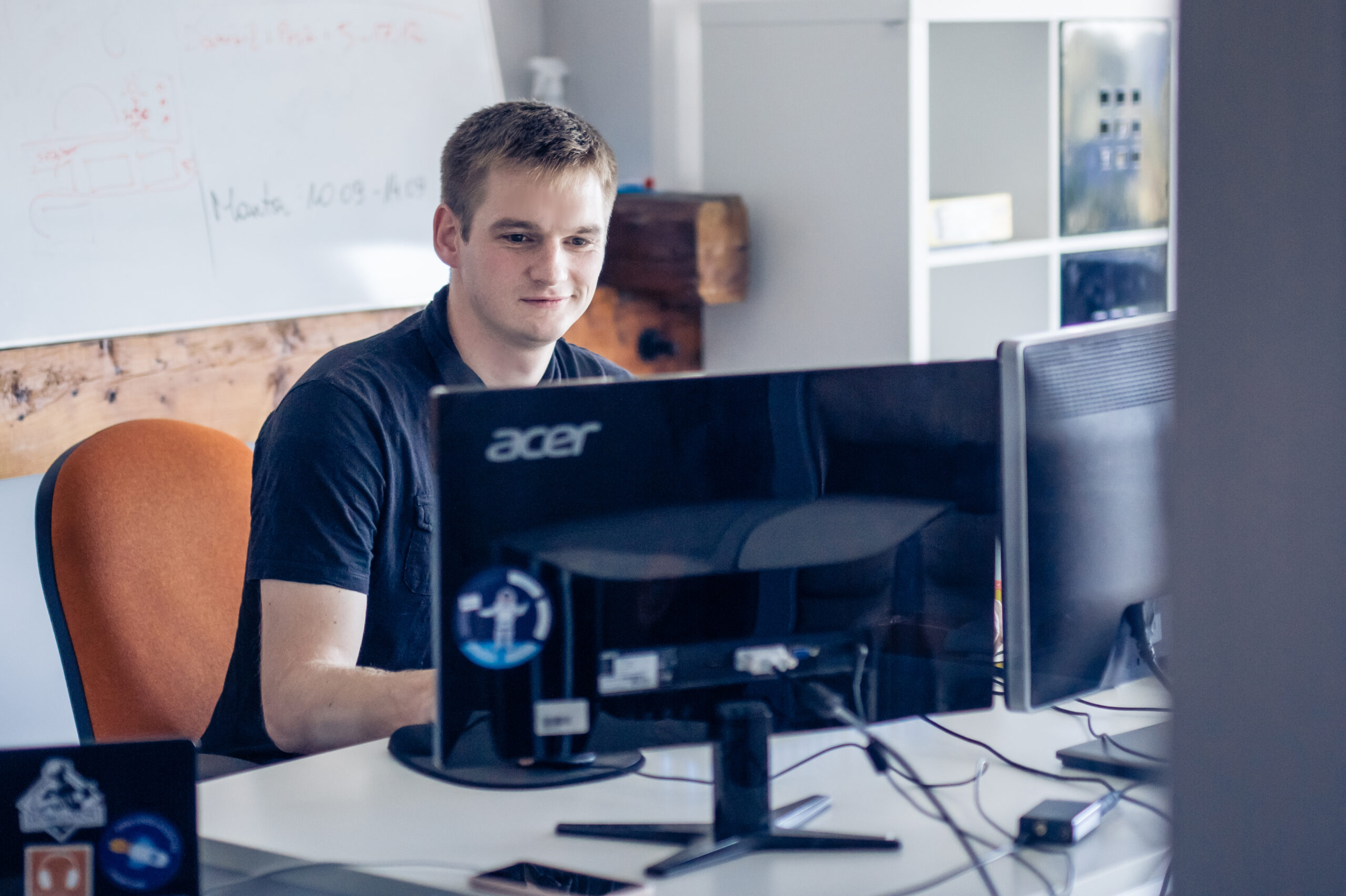We have always strongly believed in success. Together, we bring our vision of growth to life. Hard work and daily commitment allow us to create the strength of the Billennium Squad. As a company, we constantly encourage our employees to self-improve and develop their skills. In Billennium they can change the project, department or position they are currently working at. It all depends, among other things, on employees’ willingness to learn new skills and gain knowledge. We already can share several stories of switching into a different field or choosing an entirely new development direction. Here is one of them.
Andrzej has been working for Billennium for four years. He started his adventure with the company as a Project Manager, later moved to the Scrum Masters team, and currently holds the position of Head of Innovation in the Digital Transformation department.
Why did you choose to work at Billennium?
I chose Billennium for several reasons. Two of them were as follows: number one, the option to work remotely (before the pandemic), and number two: the opportunity to join a global organization. The company had ambitious projects and offered a competitive salary.
I was hired as Project Manager, but since I had obtained my first PSM I (Professional Scrum Master I) certificate before, I knew I would like to continue my development in this direction. Additionally, there was no Scrum Master department at Billennium at that time and hardly anyone used agile methodologies on a daily basis.
What was the beginning of your career in Billennium like?
I started working for a large client in the pharmaceutical industry. The first project I participated in was demanding as there was little time left to complete it, and there were financial consequences in case of any delay.
There was no one person to lead the project and problems were accumulating, leading to general tension. So I decided to try to run the project using an agile approach.
My tasks included the implementation of Scrum – from the planning phase, through Daily and Sprint Review to Retrospective. In the project, the idea of weekly sprints was born, so we could complete a specified amount of work each week. Thanks to the sprints, we were able to meet the deadline – step by step.
That experience taught me that scrum approach worked, even in difficult and demanding conditions, where it was necessary to act quickly and substantively.
Beginnings are often difficult, but it is great that the project was completed and you gained valuable experience. We are curious to know what your work was like in your next projects?
After completing the first project, it was time for another challenge. I decided to approach a client whose company was located in the Silicon Valley (San Francisco, CA).
Our conversation was outstanding. That experience was valuable as it felt more like coaching rather than asking questions. We covered subjects such as the values I follow in my life or the simulation of dealing with crisis situations.
The project was ambitious enough, and the managers were so change-oriented that I soon expressed my willingness to join it. Eventually, I stayed there for two years. I was allowed to recruit the entire team to work on the tasks I was assigned to, conduct strategic workshops, planning, and digital transformation.
At the outset, the priority was to build future-proof solutions that required refined architecture and quality assurance. Work was progressing, teams started to self-organize so there was space to get involved in other projects for the client as well as internal initiatives at Billennium.

You conducted workshops during the project implementation phase. Did you have an opportunity to use your coaching skills at Billennium?
As the Scrum Master department was established, I wanted to test myself as a trainer in this field. I chose the ‘small steps’ approach. Initially, I wanted to build trust and show that I was an expert, i.e. I knew what I was doing, and that I was proficient in it.
After working hours, I prepared presentations to share my knowledge. In addition, I conducted external workshops. My commitment and consistency were finally noticed – I ran my first training course at Billennium. Over time, this initiative evolved into a series of periodic internal training courses, allowing our employees to get a PSM I certificate.
Together with the whole Scrum Masters department, we “polished up” the workshops to make them even better (they are continued today). We managed to devise the “train the trainer” formula. It was based on a rule that employees who had previously taken such a course could later re-run it for others on their own, and in such a way share their knowledge and experience.
We worked on a variety of projects, which had a tremendous value for us and gave us the opportunity to adjust the training courses to the organizational background, taking into account the specifications of various industries that we got to know better.
Over time, I was involved in running other Design Sprint and Service Design workshops (in cooperation with Ola from the Customer Experience department), so I had a chance to participate in creating our company’s strategy for the coming years.
In your opinion, what are the things that good scrum masters should be aware of? What qualities should they have?
- Development and openness.
In my opinion, a good Scrum Master should pursue proficiency through continuous development, appropriately adjusted to the company and teams they cooperate with. All the time, I was doing my best to constantly improve my skills.
I wanted to learn new techniques, open up to interactions with others, and share what I learned. Scrum Master in an IT organization needs to have basic technical knowledge. This allowed me to understand what the meetings I attended were about; I was able to ask key questions and become an active partner in communication.
- Keep business goals in mind.
The task of each individual at an IT organization is to deliver the best possible products with the expected business value. Your attitude should be client-oriented all the time. In other words, you should keep in mind the broadly defined business, its needs and expectations, and deliver a solid job, due diligence, and timeliness. If any of these elements is missing, you have to make sure that communication is transparent. Proper estimation and product/project management are a required part of due diligence in this profession.
- Trust, effective team management, and communication.
Being a Scrum Master is difficult. You need to have a diverse skillset and expand it constantly. Apart from knowing Scrum Guide, facilitation techniques and correct approach to scrum events, two other things were of great value for me: effective team management and good communication.
I constantly explore psychology and issues related to nonviolent communication (NVC). The Scrum Master should continually pay attention to what is going on so the team would not be harmed or even destroyed by certain situations. Therefore, Scrum Master’s work is based primarily on mutual trust and care for people in the process of achieving a common goal.
Working on a project for a foreign customer while conducting internal workshops in the organization is not easy. Could you tell us more about this kind of work?
Working for a client from the US was inconvenient because due to the time zone I had to be active at night. I have four kids so I decided to look for a job elsewhere.
After three years at Billennium, I was ready for a change. I wanted to take another step forward, find new challenges, and experience a different organizational culture. However, Billennium made me an offer to create something new.
This is how the concept of the “Innovation Lab” hub was born. It is a workshop space where we accelerate both internal and external business ideas. At Billennium, I have an opportunity for personal development and an impact on the company’s image. Moreover, there are some people here who believe in me and show me their appreciation. For me, these were decisive factors to stay at Billennium.
Andrzej – thank you for sharing your amazing story and experience. Finally, what would be your advice for others?
Although it is not always easy, if you want to achieve something, fight for it and show your determination, and improve your skills and knowledge constantly. The experience I have had so far and my position today made me realize that I can participate in creating the organizational culture, shape a specific approach to clients or organize work inside the company. Where there is a will there is a way.
See our latest job offers.
